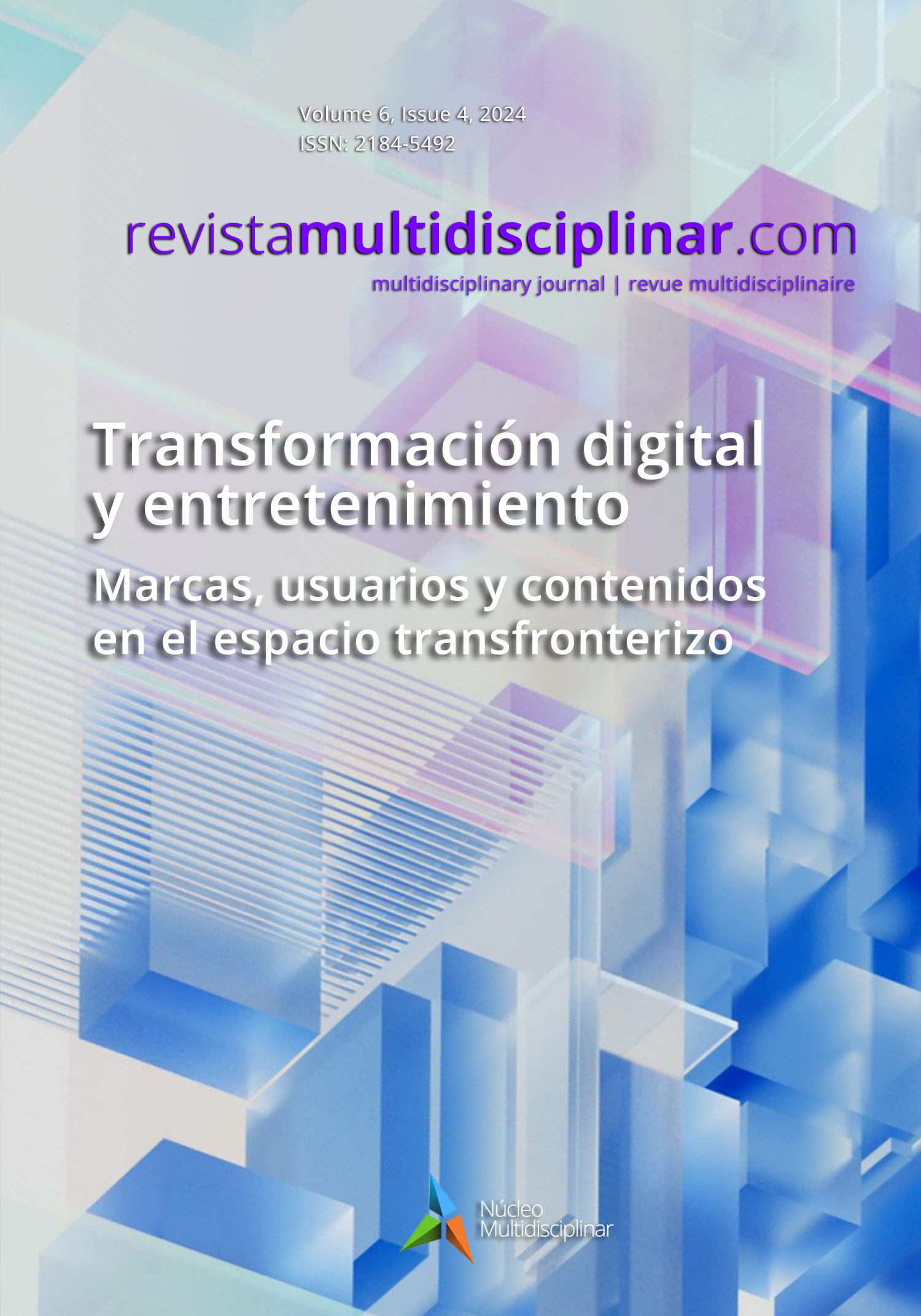Inteligencia artificial y medio ambiente
DOI:
https://doi.org/10.23882/cdig.24270Palabras clave:
inteligencia artificial, medio ambiente, cambio climáticoResumen
El rápido crecimiento y desarrollo de la inteligencia artificial (IA) en la forma de vivir, trabajar e interactuar de las personas ha traído consigo una serie de beneficios. Pero, al mismo tiempo, también genera debate desde una perspectiva ética, social o medioambiental y en relación con su evolución, expansión y adopción. La inteligencia artificial (IA) es una poderosa herramienta que está revolucionando muchos sectores, entre ellos el del medio ambiente. A través de algoritmos avanzados y capacidades de aprendizaje automático, la IA ofrece soluciones innovadoras para abordar los retos medioambientales, desde la gestión de los recursos naturales hasta la mitigación del cambio climático. Exploraremos cómo la IA puede mejorar el medio ambiente en algunos de los ámbitos más destacados: vigilancia y conservación de la biodiversidad, agricultura sostenible, gestión de residuos, energías renovables y análisis de datos medioambientales. En definitiva, buscar y analizar soluciones para superar los retos de futuro que puede deparar el cambio climático. Soluciones que implican a gobiernos, organizaciones no gubernamentales, comunidades locales, científicos y sector privado.Citas
European Commission, Joint Research Centre, Manzoni, M., Medaglia, R., & Tangi, L. (2022). AI Watch, road to the adoption of artificial intelligence by the public sector: a handbook for policymakers, public administrations and relevant stakeholders. Publications Office of the European Union, 65-68. Disponible en [AI Watch, road to the adoption of artificial intelligence by the public sector - Publications Office of the EU] (https://publications.jrc.ec.europa.eu/repository/handle/JRC129100).
European Parliament, Directorate-General for Internal Policies of the Union, Herold, A., Gailhofer, P., & Urrutia, C. (2021). The role of artificial intelligence in the European Green Deal. European Parliament, 31. Disponible en [The role of artificial intelligence in the European Green Deal - Publications Office of the EU] (https://op.europa.eu/en/publication-detail/-/publication/5a1f76e8-7ef1-11eb-9ac9-01aa75ed71a1).
Galera Rodrigo, S. (2021). Cambio de modelo en la transición energética: ¿otro tren que pasará? Actualidad Jurídica Ambiental, (114), 3-4. Disponible en [Cambio de modelo en la transición energética: ¿otro tren quepasará?](https://www.actualidadjuridicaambiental.com/articulo-doctrinal-cambio-de-modelo-en-la-transicion-energetica-otro-tren-que-pasara/) (Fecha de último acceso 11/10/2022).
Goodfellow, I., Bengio, Y., & Courville, A. (2016). Deep learning. MIT Press. IA por el planeta: Destacando las innovaciones de la IA para UNESCO.
Johnson, R., & Johnson, E. (2021). AI and climate change: How they intersect and how to leverage both for the future. *Journal of Environmental Management, 287*, 112322. https://doi.org/10.1016/j.jenvman.2021.112322
LeCun, Y., Bengio, Y., & Hinton, G. (2015). Deep learning. *Nature, 521*(7553), 436-444.
Pardo-Burbano, M., Pinto-Rodríguez, V., & Muñoz-Ordóñez, J. (2021). EcologIA: Inteligencia Artificial para el cuidado del medio ambiente, prototipo de clasificación de residuos sólidos en punto de origen. *Investigación e Innovación en Ingenierías, 9*(3), 46-56. https://doi.org/10.17081/invinno.9.3.5312
Marcus, G., & Davis, E. (2019). Rebooting AI: Building artificial intelligence we can trust. Pantheon Books.
Regulation (EU) 2024/1689 of the European Parliament and of the Council of 13 June 2024 laying down harmonised rules on artificial intelligence and amending Regulations (EC) No 300/2008, (EU) No 167/2013, (EU) No 168/2013, (EU) 2018/858, (EU) 2018/1139 and (EU) 2019/2144 and Directives 2014/90/EU, (EU) 2016/797 and (EU) 2020/1828 (Artificial Intelligence Act) (Text with EEA relevance)
Rolnick, D., Donti, P. L., Kaack, L. H., Kochanski, K., Lacoste, A., Sankaran, K., ... & Bengio, Y. (2019). Tackling climate change with machine learning. *arXiv preprint arXiv:1906.05433*. https://doi.org/10.48550/arXiv.1906.05433
Smith, M. R., & Kelling, S. (2018). Artificial intelligence for environmental monitoring and management. *Frontiers in Ecology and the Environment, 16*(5), 261-269.
Vinuesa, R., Azizpour, H., Leite, I., Balaam, M., Dignum, V., Domisch, S., ... & Nerini, F. F. (2020). The role of artificial intelligence in achieving the Sustainable Development Goals. *Nature Communications, 11*(1), 1-10. https://doi.org/10.1038/s41467-019-14108-y
Wearn, O. R., Freeman, R., & Jacoby, D. M. P. (2019). Responsible AI for conservation. *Nature Machine Intelligence, 1*(2), 72-74. https://doi.org/10.1038/s42256-019-0022-7
Descargas
Publicado
Cómo citar
Número
Sección
Licencia
Derechos de autor 2024 Celia García-Ceca

Esta obra está bajo una licencia internacional Creative Commons Atribución-NoComercial 4.0.









